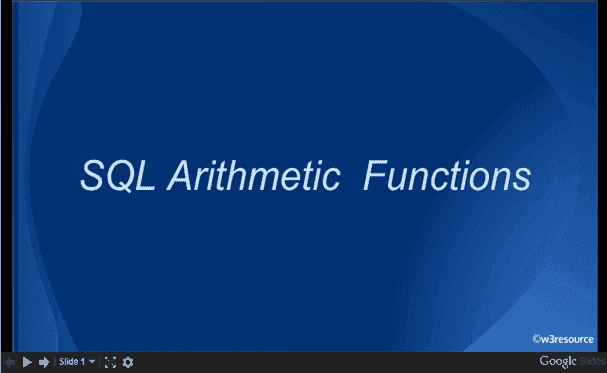SQL arithmetic function
Arithmetic function
A mathematical function executes a mathematical operation usually based on input values that are provided as arguments, and return a numeric value as the result of the operation. Mathematical functions operates on numeric data such as decimal, integer, float, real, smallint, and tinyint.
By default, the precision of built-in operations on float data type data is six decimal places.
SQL arithmetic functions are:
| Functions | Description |
|---|---|
| ABS() | This SQL ABS() returns the absolute value of a number passed as an argument. |
| CEIL() | This SQL CEIL() will rounded up any positive or negative decimal value within the function upwards. |
| FLOOR() | The SQL FLOOR() rounded up any positive or negative decimal value down to the next least integer value. |
| EXP() | The SQL EXP() returns e raised to the n-th power(n is the numeric expression), where e is the base of natural algorithm and the value of e is approximately 2.71828183. |
| LN() | The SQL LN() function returns the natural logarithm of n, where n is greater than 0 and its base is a number equal to approximately 2.71828183. |
| MOD() | This SQL MOD() function returns the remainder from a division. |
| POWER() | This SQL POWER() function returns the value of a number raised to another, where both of the numbers are passed as arguments. |
| SQRT() | The SQL SQRT() returns the square root of given value in the argument. |
Here is a new document which is a collection of questions with short and simple answers, useful for learning SQL as well as for interviews.
Slide presentation:

Check out our 1000+ SQL Exercises with solution and explanation to improve your skills.
